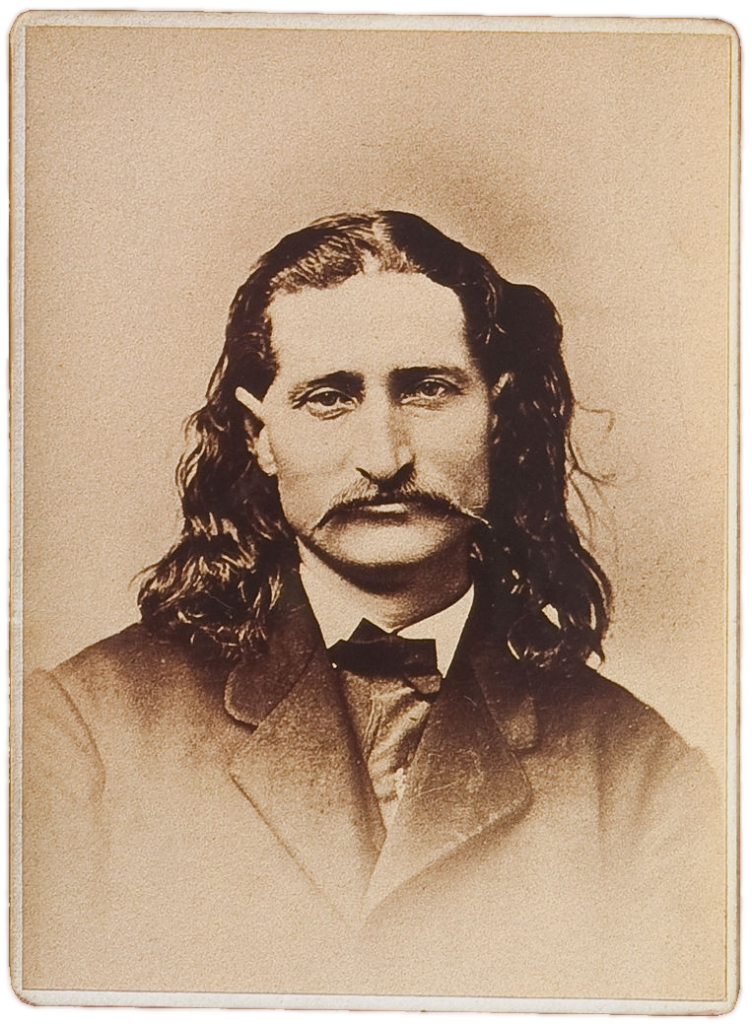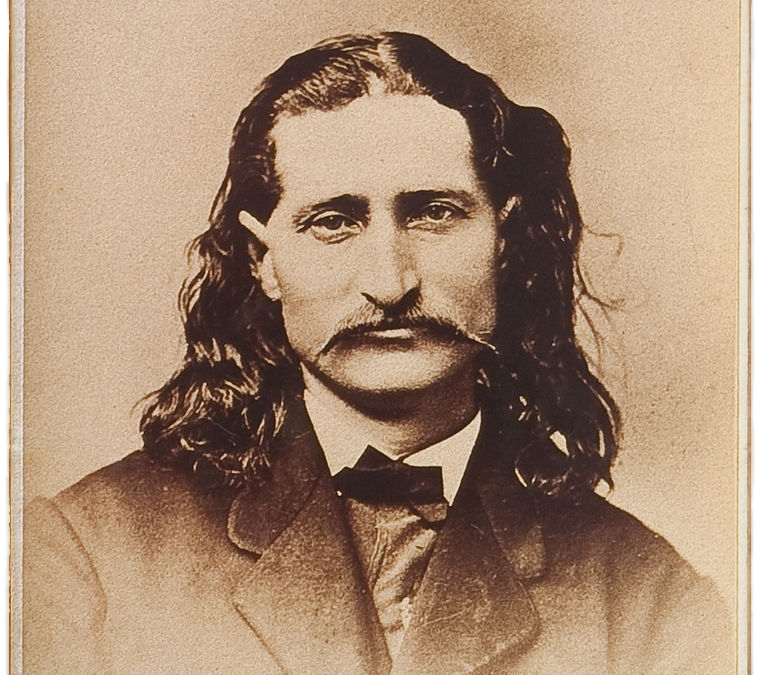
The legend of Wild Bill Hickok was born in 1867, when George Ward Nichols’ article in “Harpers Weekly,” made Wild Bill Hickok the Old West’s first super-hero. The legend had its genesis as a result of the infamous fight on July 12, 1861, at Rock Creek Stage Station, Nebraska.
Hickok was working at the station while recuperating from wounds suffered earlier in a fight with a grizzly bear down on the Santa Fe Trail. David McCanles, former owner of the station and local farmer of some renown, didn’t care much for Hickok made some comments about his feminine features. Wild Bill retaliated by secretly courting McCanles’ girl friend, Sarah Shull.
That fateful day, McCanles came to the station to collect some money owed him by the new stationmaster, Horace Wellman. Accompanying him was his 12-year-old son, Monroe, a cousin, Jim Woods and a friend, Jim Gordon. All were unarmed.
Harsh words were exchanged and as McCanles walked in the door of the station, Hickok, standing behind a screen, shot him dead. Hickok then turned and shot both Woods and Gordon. Woods got up and ran a short distance before he was chased down by the stationmaster, who clubbed him to death with a garden hoe while his common-law wife Jane screamed, “Kill ’em all.” Some claimed it was Jane who did the deed. Gordon ran away and hid in the brush but was betrayed by his own dog that chased after his master and unwittingly led the killers to his hiding place where Doc Brink shot gunned him to death. The youngster was able to escape the hoe-wielding stationmaster and escaped into the woods. This was definitely not a Hollywood-style gunfight, nor was it the Old West’s finest moment.
Hickok, Wellman and Brink, were arrested but in a hearing regarded pretty much as a sham, the three were released. The only witness on the McCanles side, who survived, Dave’s twelve-year-old son, Monroe, wasn’t allowed to testify.
There was talk that McCanles’ mistress, Sarah Shull, was having an affair with Hickok, and this was a cause for animosity between the two. Years later, just before her death she denied the any romance with Wild Bill but did say, “I came close to having an affair with Hickok.” It wasn’t exactly the stuff from which legends are made but that didn’t stop dime novelist, George Ward Nichols. Five years after the fight, he wrote a greatly embellished version in Harper’s Magazine, dictated and drawn from the fertile imagination of Hickok, who never let the truth get in the way of a good story. By this time Hickok had slain the “M’Kandles Gang,” all ten members of them, with a rifle, six-gun and bowie knife.
Other dime novelist’s, were also taken in, including Henry M. Stanley, the African voyager, better-known for uttering the famous phrase, “Dr. Livingston, I presume?” Stanley retold the story adding more “facts.” Hickok, with a straight face, told the gullible Stanley he’d personally killed more than a hundred men. When they finished creating the legend, Wild Bill had single-handedly dispatched as many as thirty members of the terrorizing “McCanles Gang.” Somehow, those three unarmed Nebraska farmers had been miraculously transformed into the most notorious desperados in the entire West.






